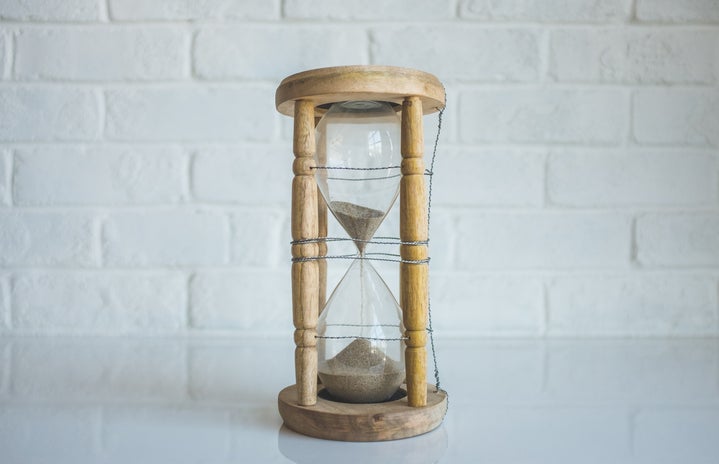This is a time of year when everyone is stressed out over final exams, projects and papers. We stay up late, glaring blankly into laptop screens in a dark room in the hopes that this paper will write itself. However, the only thing that ends up happening is the introduction gets written and we lose a lot of sleep in the process. Sleep deprivation can affect how you perform the next day and, if it is consistent, it can affect your health. Research shows that sleep deprivation can lead to such negative things like lower grades and health problems. Now you may want to rethink that 4 a.m. study cram session with Papa John’s pizza. Here are four tips that can help you make sure you are getting enough sleep during this busy time of the year so that you can ace those final projects, papers and exams.
[Photo courtesy of the Huffington Post]
1) Reduce the amount of blue light you receive before bed:
Recently, scientists have been cautioning that people should avoid using light emitting devices before bad. This is due to the fact that these devices are “short-wavelength-enriched,” which means that they contain a higher concentration of blue light than natural light does. And, in turn, blue light affects the sleep-inducing hormone melatonin, according to the Scientific American. So, instead of staying up until 1 a.m. on your laptop or watching Netflix, try and avoid using blue light for up to an hour before bed. In this age of technology, it is hard to follow this rule, but if you could read a book before bed or do your homework that does not involve a screen you would be better off. Try and get your papers and screen-related homework done prior to bedtime.
[Photo courtesy of Plantronics]
2) Bed should be for sleep and sex only; that means no Netflix!
I have known since high school that you should not do homework in bed. Apparently, where you do homework creates an idea in your head that connects stress with your bed. That can mess up your sleep. But, according pamphlets from the UNCW Counseling Center, any activity other than sex or sleep done in your bed can negatively impact your sleep. That includes the infamous Netflix & Chill; you should not be watching Netflix in your bed for long periods of time. Though the occassional 30-minute-long Netflix episode will not affect your circadion rhythm, binge watching is something you may want to reserve for the couch in the living room.
[Photo courtesy of MetroUK2]
3) Reduce your intake of caffeine, especially later during the day.
This seems like a no-brainer, however, it can be hard to make it through a long day without lots of caffiene. Whether it be coffee, energy drinks or caffeine infused teas, make sure to reserve those beverages for the morning and that you limit your intake throughout the day. The more caffiene you have in your system, especially later on during the day when you may want to start winding down for bed, the less likely you are going to be able to fall asleep. Also, you should avoid too much caffeine in general; it is not necessarily good for you. And although coffee may be an unintentional symbol of the college experience, it is more important to take care of yourself.
[Photo Courtesy of Civil Coffee]
4) Still having trouble?: Try meditation or melatonin.
If you are still finding it difficult to sleep during this stressful time, you may not be having sleep issues due to outside sources. Maybe stress itself is causing your difficulties with sleeping. A few things to consider here would be meditation and the use of melatonin supplements. Meditation is a good practice for anyone, but especially for anyone who is under a lot of stress. It allows you to take time to yourself to pay attention to your body and its needs rather than on class work and deadlines. Of course your school work is important, but so is your health. So, maybe consider creating a schedule for when it is okay to do class work and reserve some time before bed for meditating. Another option that a lot of people use with success is melatonin supplements. Not only are they helpful, since they are increasing the hormone in your body that induces sleep, but they can be relatively cheap and bought without a prescription at your local Target or Walmart. It is very accessible.
[Photo courtesy of Amazon]


